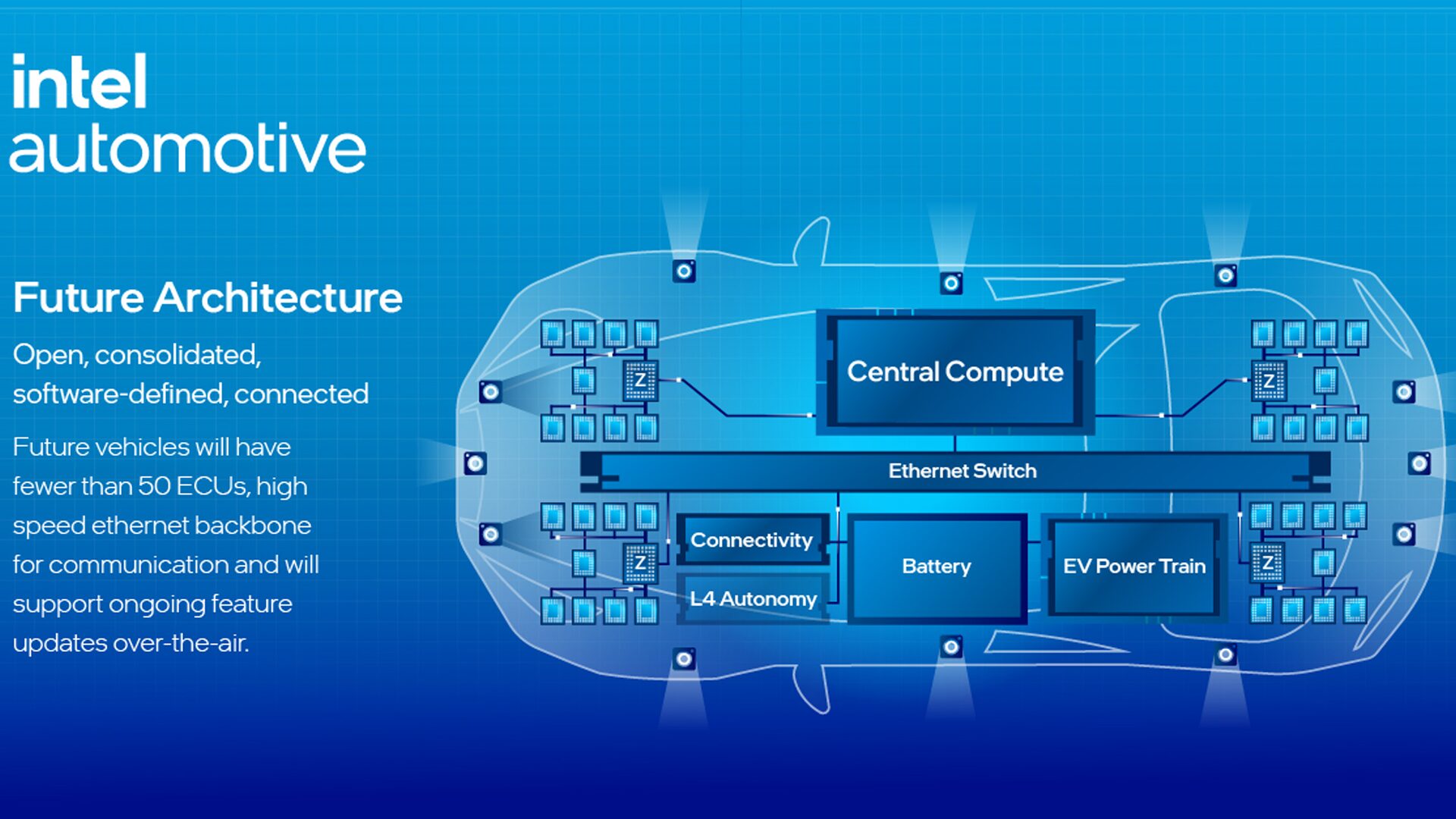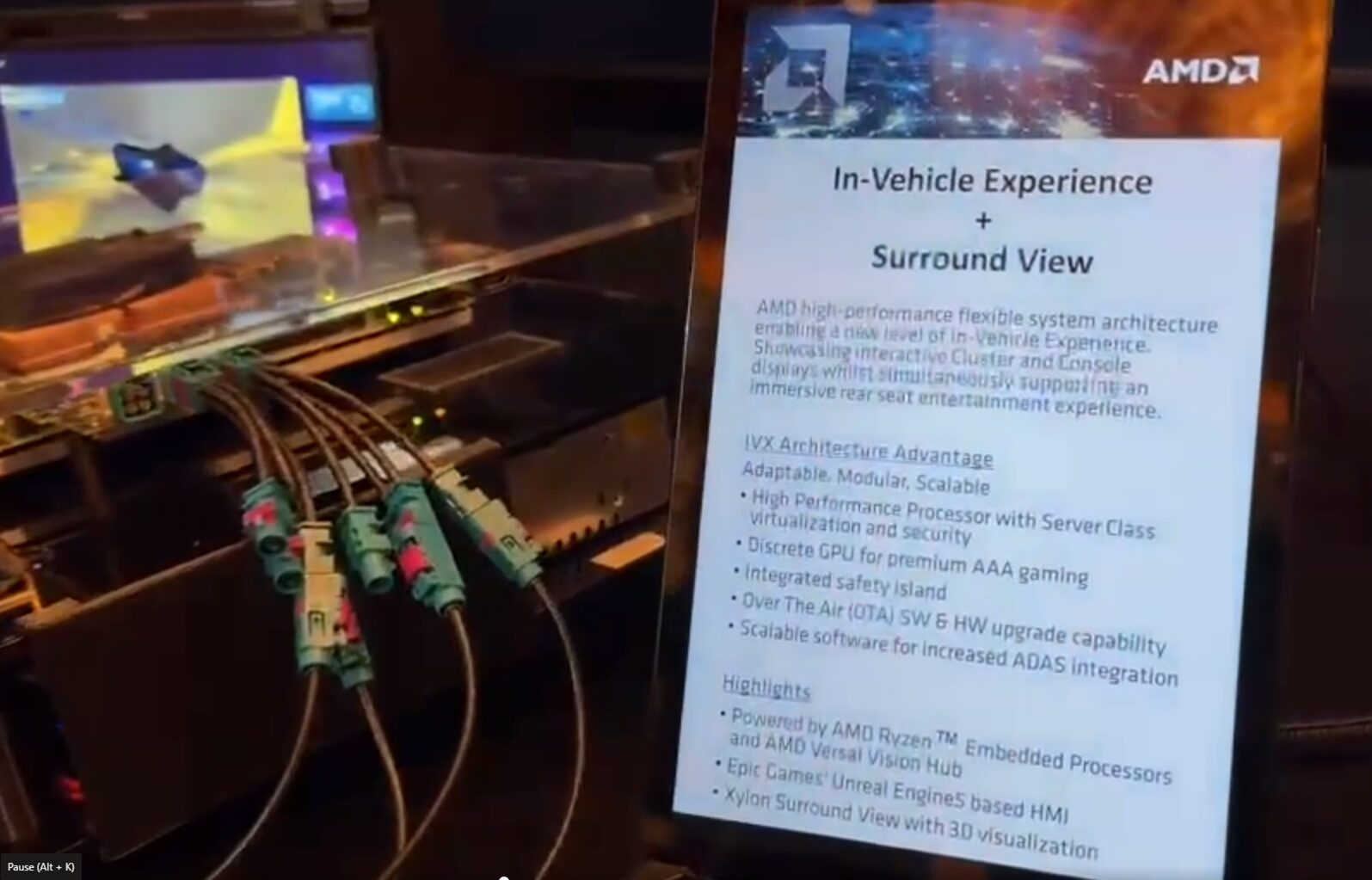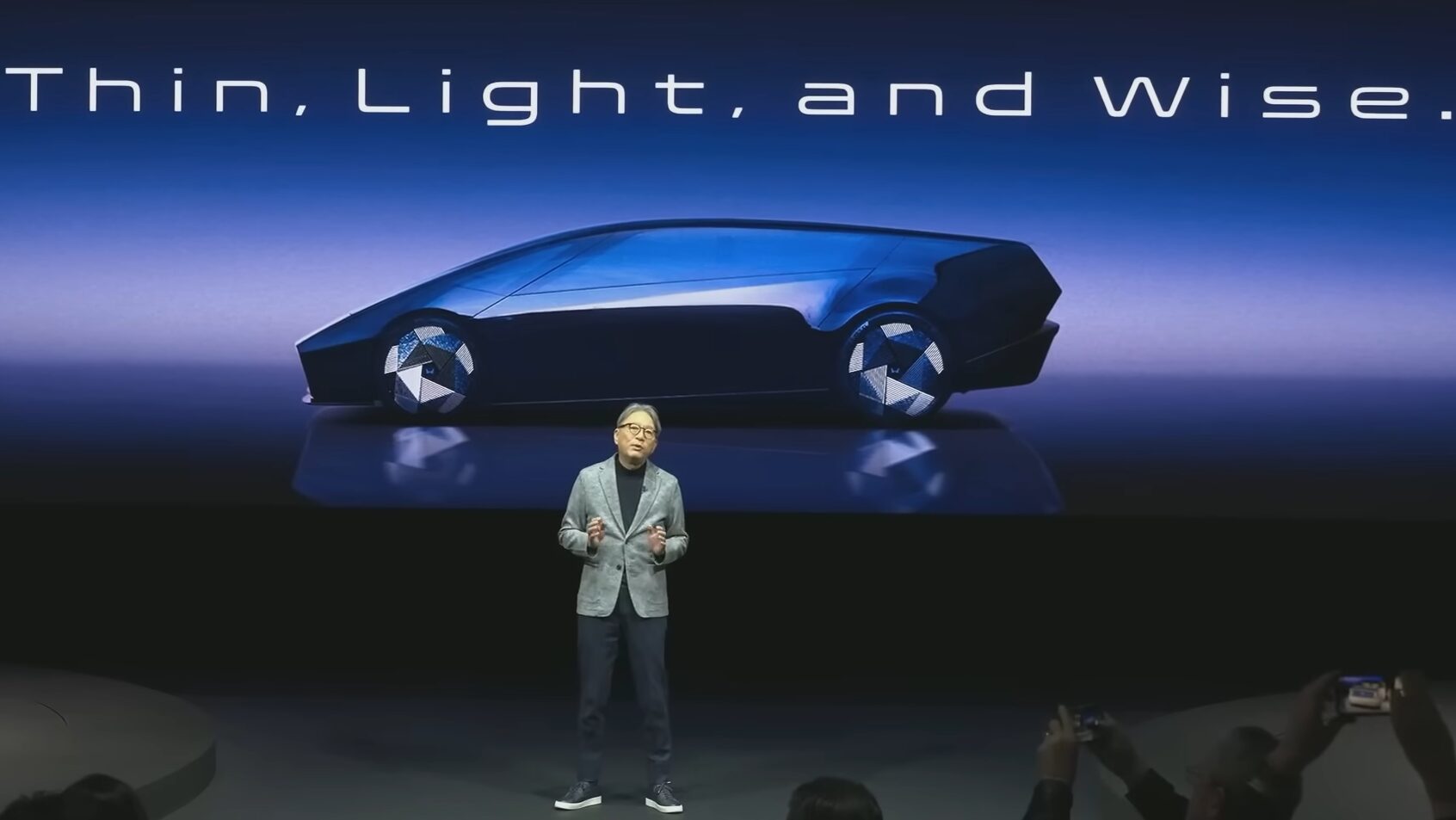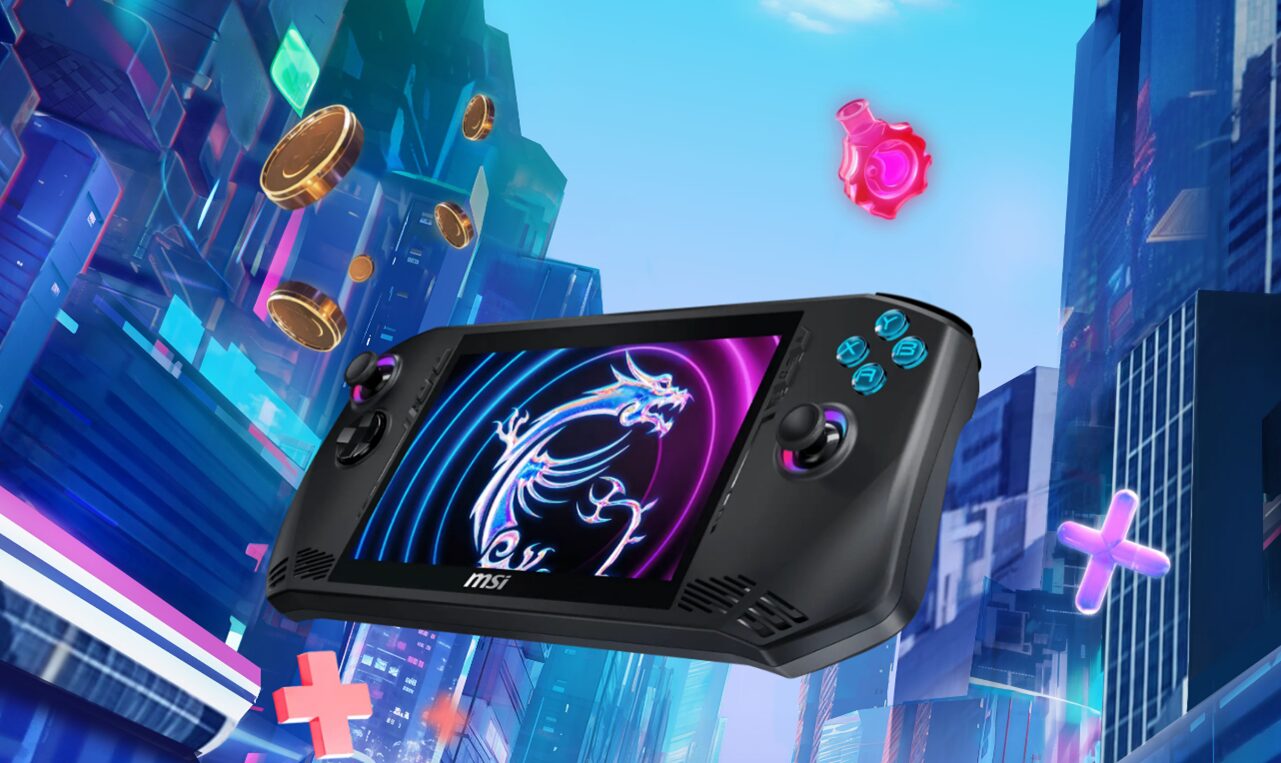Tech’s biggest week – CES, or the annual Consumer Electronics Show – started on January 9. Counterpoint Research teams are present on the spot in Las Vegas and also virtually. Day 2 started with some more innovative product reveals. Check out the top standout announcements below:
Intel chip brings AI to automobiles
Intel unveiled its first-generation AI-enhanced SDV SoC, a groundbreaking move to bring AI to automobiles. Beyond enhancing navigation and voice controls, Intel aims to support manufacturers in building true software-defined vehicles. Neil Shah, VP of Research at Counterpoint, emphasized the transformative impact on the automotive industry, envisioning a shift towards software-centric vehicles that marks a fundamental change in automakers’ approaches.
“Intel Automotive isn’t just about in-car GenAI, it is more fundamental than that. It is about helping automakers transform their vehicles and processes to become software-centric and bring them into the smartphone age.”

AMD enters automotive segment
In a significant move, AMD has stepped into the automotive arena with the introduction of two devices. The Versal AI Edge XA SoC takes center stage with its advanced AI Engine, strategically aimed at enhancing driver safety and facilitating progress in autonomous driving. Complementing this, the Ryzen Embedded V2000A Series processors focus on creating a seamless digital cockpit experience, spanning infotainment consoles, dashboards and passenger displays. Neil Shah, VP of Research at Counterpoint, emphasizes the impact of AMD’s offerings in addressing the complexities of autonomous driving, particularly at Level 3 and above.
“Autonomous driving – at least Level 3 and above – has been elusive for most of the industry. AMD is providing its partners with some serious firepower to address the complexities and bring the reality closer this year.”

Honda Zero: EV Zero to Hero?
Honda presented a new perspective on electric vehicles with the introduction of its ‘almost finished’ sedan and concept Space Hub van. These vehicles embody the principles of being thin, light and wise. Despite the impressive showcase, the reality is that these vehicles might not hit the market for another two to three years. Jeff Fieldhack, Research Director at Counterpoint, appreciates Honda’s minimalist approach, aligning with Japanese culture, but cautions about the execution timeline in the competitive EV landscape.
“As with many EV demos, Honda brought the WOW factor. I love the minimalist approach they are taking, which is in line with the Japanese culture and roots. It is a great marketing story for now, but how this translates into execution is yet to be seen. We are still two to three years away and in EVs, that can be a long time.”

Intel’s SoC, Android Automotive Battle Battery Woes
EV range anxiety remains a significant concern, and Intel’s Silicon Mobility acquisition aims to address this with energy management SoCs for enhanced longevity. Android Automotive stepped in with crucial updates, including real-time battery information sharing between the car and Maps. Peter Richardson, VP of Research at Counterpoint, highlights the persistent challenge in EVs, drawing parallels with the smartphone world’s historical struggles.
“Low-battery anxiety, or ‘nomophobia’ as we like to call it, is something that has plagued the smartphone world for years. In cars, the consequences are far more critical. These two announcements represent the big and little steps players across the ecosystem are taking to resolve what continues to be the biggest headache in EVs today.”
![]()
Amazon push for smart home standards
Amazon made waves with its Matter Casting announcement, introducing a novel way for Amazon device users to cast content from their mobile devices. The noteworthy aspect lies in the utilization of the open-standard smart-home Matter Protocol, which is brand agnostic. Maurice Klaehne, Senior Analyst at Counterpoint, commented on the significance of this announcement.
“The Matter Casting announcement was slightly under the radar but – forgive the pun – it really matters. Smart home standards are so fragmented at the moment, having an open standard like the Matter Protocol is something that will help the sector grow over the long term. Amazon’s nod is a big deal.”

MSI unveils gaming handheld
MSI unveiled the Claw, a “world-first” Intel Core Ultra Processor-powered gaming handheld, marking a robust entry into the competitive gaming field. The device boasts dedicated AI silicon, promising impressive graphics, and pairs it with the Windows 11 OS, creating a compelling package with a broad game library. According to Emily Hebert, Research Analyst at Counterpoint, this marks a pivotal moment for gaming handhelds and showcases Intel’s AI Everywhere ethos.
“Solid device and specs, but for me, this is as much about gaming handhelds as it is about Intel’s AI Everywhere ethos. For that reason, this was one of the day’s top five announcements. It will be exciting to see how this and other devices perform with the Core Ultra 7 chip, not just in terms of graphics but the power consumption too.”

Conclusion
CES Day 2 showcased Intel and AMD’s commitment to revolutionizing automobiles with AI, Honda’s futuristic EV concepts grounded in minimalism, significant strides in smart home standards with Amazon’s Matter Casting and the introduction of a groundbreaking gaming handheld by MSI. The tech landscape is evolving, and these developments pave the way for a more connected and intelligent future whether at home or on the road.

